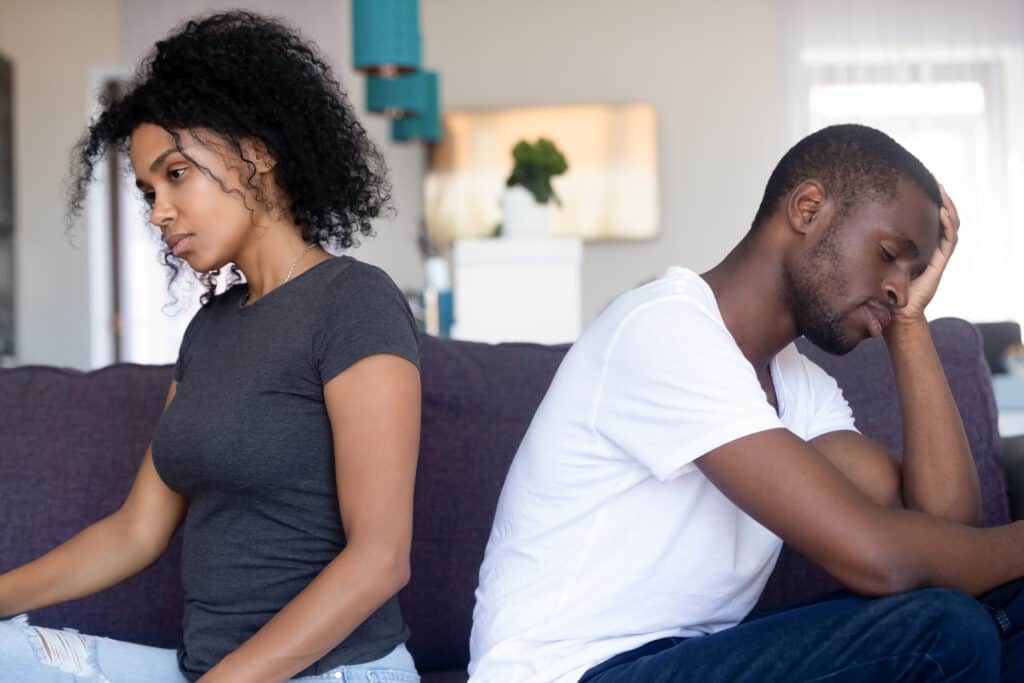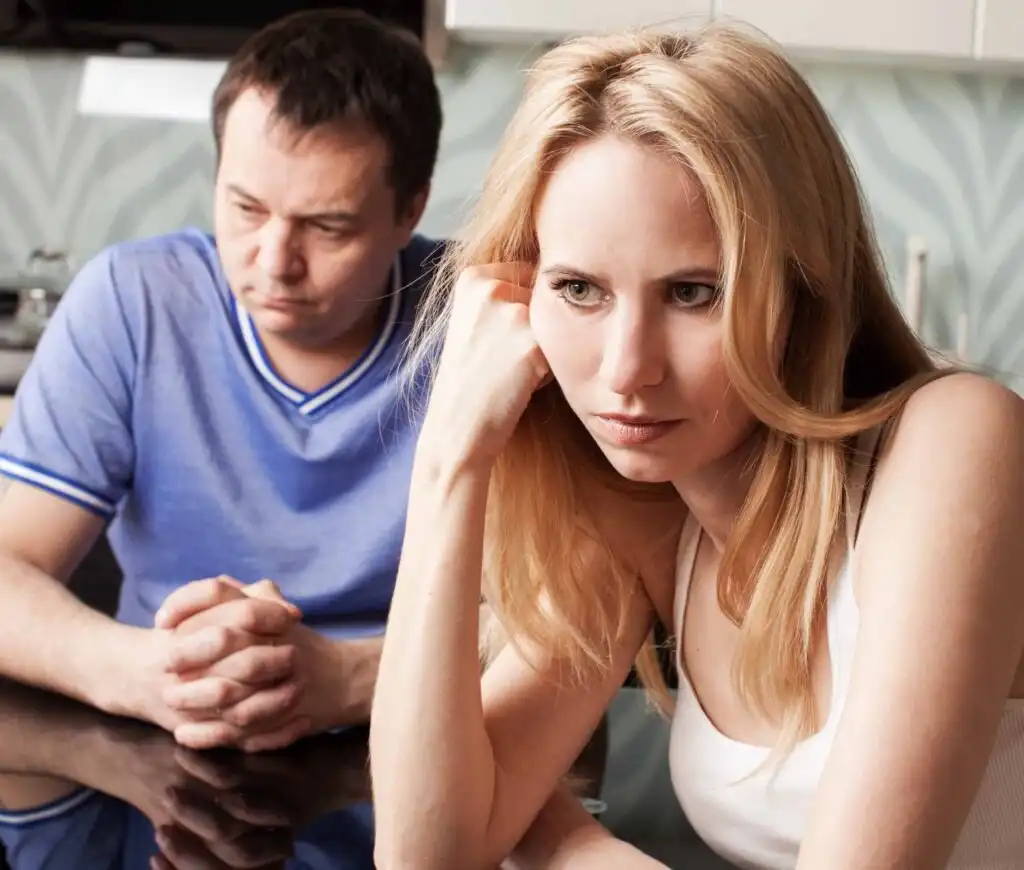Anxiety exists in many forms and can permeate all aspects of our lives, including our relationships. While it can be concerning, relationship anxiety is normal and extremely common. No matter how close we get to someone or how well the relationship is going, it’s common to have moments of doubt.
However, if you find yourself constantly questioning your relationship or doubting your partner’s affections, you may be experiencing relationship anxiety.
What is Relationship Anxiety?
Relationship anxiety refers to feelings of worry and doubt that can make us feel our relationship is in jeopardy, even if it’s not. People experiencing relationship anxiety may question their partner’s feelings towards them or question their self-worth in a relationship.
Relationship anxiety commonly occurs at the start of new relationships while people navigate the hurdles of getting to know one another. However, relationship anxiety can rear its head at any time throughout a relationship.
Some signs you may be experiencing relationship anxiety include:
- Wondering whether you and your partner are suitable for one another
- Doubting your partner’s feelings for you
- Constantly worrying your partner wants to break up
- Overthinking and reading into your partner’s words and actions
If left to linger, relationship anxiety can take a severe toll on you. You may experience any of the following symptoms if your relationship anxiety persists over a long period:
- Emotional distress or emotional exhaustion
- Fatigue
- Depression or lack of motivation
- Physical health issues
While some level of worry is normal in every relationship, persistent anxiety can damage your relationship in more ways than one.
How Can Relationship Anxiety Hurt Your Relationship?
Relationship anxiety can cause even the strongest relationships to deteriorate. And often, the person experiencing the anxiety isn’t the only one affected.
Your partner
Anxiety typically leads to overthinking, which can cause us to turn inwards to cope. While self-reflection is important, you may be inadvertently shutting out your partner or pulling away from them. You may also feel the need to pull away from your partner out of fear of disappointing them.
Your partner likely won’t know the reason for your distance, which can cause them to develop their own anxieties about the relationship. The reasons for your anxiety may be unfounded, so there’s no way for your partner to know if they’ve done something wrong.
Failure to communicate with your partner can damage your emotional connection with them. You may feel you can’t open up to them, which may make them feel a lack of trust in the relationship.
Sexual Performance
Relationship anxiety can also spill over into your sex life. If your anxiety is causing you to pull away from your partner, there’s a good chance you won’t be making time for intimacy. A lack of intimacy may cause your partner to feel you aren’t attracted to them anymore.
Anxiety can also lead to poor performance in the bedroom. When you’re worrying too much about what your partner thinks, you won’t be able to focus on or enjoy the moment.
General Relationship Strain
Pulling away from your partner can make them feel like they’re doing something wrong or that you no longer care about them. Anxiety can also make it difficult for you to speak up about your needs. It may cause you to neglect your partner’s needs, causing the relationship to slowly break down.
Sabotaging the Relationship
People experiencing relationship anxiety may attempt to sabotage their relationship, even if they are unaware they are doing it.
Sabotaging is usually an unconscious method of measuring how much your partner cares about you. The most common type of sabotage is pushing your partner away to test how willing they are to prove their love for you. This method usually backfires, as your partner is unlikely to understand the motive behind the shift in your affection and likely to feel you’ve lost interest in them.
Recognizing the Signs of Relationship Anxiety
Anxiety can make us lose sight of reality. While we can’t always control it, recognizing the signs of relationship anxiety can help us develop coping strategies to mitigate the effects. And it’s equally as important to recognize the signs of relationship anxiety in your partner.
Notice if you or your partner avoid bringing up issues, even if they bother you significantly. It may be a sign that someone feels they can’t speak up in the relationship out of fear of losing the other. Constant worrying that your partner may get mad at you is a sign of relationship anxiety.

Notice if your partner seems distant. There’s a difference between wanting some space after a long day at work and outright avoidance. If your partner becomes passive, closed off, and uninterested in physical or emotional intimacy, they may feel anxious in the relationship.
Tips for Handling Relationship Anxiety
Remember that relationship anxiety is normal and you shouldn’t feel guilty for experiencing it. If it starts to affect your relationship, you can follow the tips below to help relieve some of the strain.
Remember yourself
If you feel anxious in your relationship, you may feel the need to change yourself for your partner. Remember that who you are is what attracted your partner to you in the first place.
Try to pinpoint what causes your anxiety
Relationship anxiety has many roots, including negative experiences in past relationships and low self-esteem. When you know what causes your anxiety, you can develop coping methods to help you mitigate it when it happens.
Be honest with your partner
Communication is essential in relationships. Let your partner know how you’re feeling. That way, they can support you and better recognize when you are feeling anxious. Being open about your relationship anxiety can help strengthen your relationship and build trust.
If your partner is doing something that bothers you, be upfront about it. Bottling up emotions will only lead to more strain on your relationship. It’s important to address conflict before it turns into resentment.
When to Seek Professional Help
If you can’t shake feelings of doubt and uncertainty in your relationship, it may be time to seek professional help. Speaking to a licensed therapist or psychiatrist can help you uncover what is causing your anxiety and develop coping strategies to treat it.



